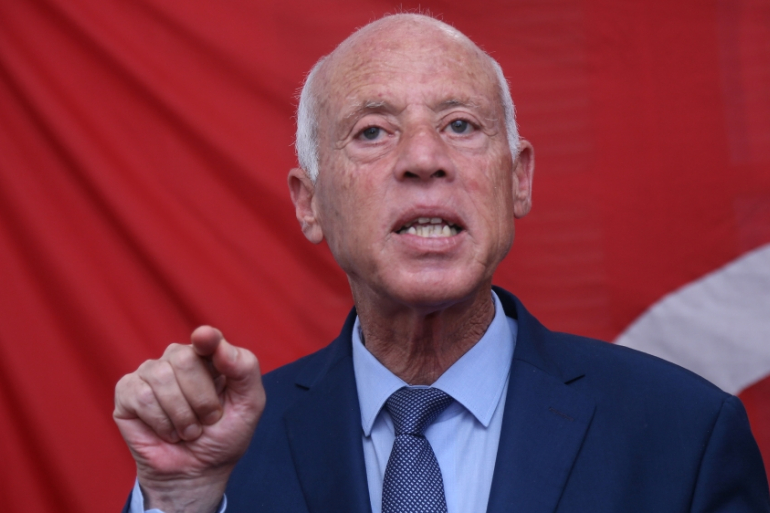Tunisian President Kais Saied said on Wednesday that “wrong economic choices” had caused major financial problems in his first comments on the economy since using emergency powers to seize control of government late on Sunday.
In a meeting with the head of the Tunisian Union of Industry Trade and Handicrafts (UTICA), a business union, shown in a video distributed by the presidency, Saied gave a hint of an impending crackdown on corruption cases but said there was “no intention to harm or abuse” business people.
Formed in 1947, UTICA represents nearly 150,000 private companies in Tunisia from all sectors, with the exceptions of tourism, banking, and financial sectors. Most of these companies consists of small and medium enterprises.
Read Also: US Cop Beats Man With Pistol, Chokes Him During Arrest – Body Camera Footage Reveals
The confederation has more than 25,000 union officials.
The Tunisian leader said 460 people had stolen 13.5 billion dinars ($4.8 billlion) from Tunisia and offered a “penal settlement” if they returned the money.
“I propose a penal reconciliation with businessmen involved in looting the people’s money and tax evasion in exchange for their commitment to projects … instead of being prosecuted and imprisoned,” said Saied, a former law professor who came to office in 2019 campaigning against corruption and an entrenched political elite.
The president did not elaborate on his proposal.
When Saied seized government powers on Sunday – a move denounced by opponents as a coup – he also said he would take over public prosecutions and removed immunity from members of parliament.
Economic stagnation, with successive governments pulled between the competing demands of foreign lenders and a powerful labour union, has contributed to growing public anger before Saied’s move on Sunday.
In his meeting with UTICA, head Samir Majoul, the president also called on traders to reduce prices and warned them not to hoard goods or speculate, saying violations would be prosecuted.
After his declaration, Tunisian bond prices fell sharply on Monday. (Reuters/NAN)

